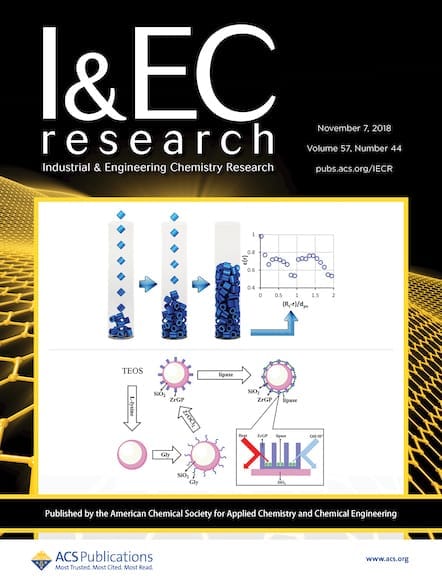Industrial & Engineering Chemistry Research Editor-in-Chief Phil Savage knows his way around the lab, with more than 200 papers to his name. But he’s also comfortable in the classroom, serving as the Department Head and Walter L. Robb Family Endowed Chair, and Professor of Chemical Engineering at Pennsylvania State University. The two roles can require […]

How did you decide to enter the field of chemical engineering?
Phil Savage: I had always enjoyed math and science, particularly chemistry, so studying chemical engineering seemed like a good initial decision when heading off to college. I did not know any engineers and I didn’t know exactly what engineers did in the workplace (other than get to use math and science to solve problems), so I was placing faith in those advising me about college majors and career opportunities. It turns out that chemical engineering was (and is) a great match for me, so I am grateful for that good advice in my high school years.
How well did college prepare you for being a chemical engineering researcher/professor?
Phil Savage: My Penn State B.S. gave me significant research experience, as well as the broad foundation in math, chemistry, physics, and engineering that allowed me to succeed in graduate school. My University of Delaware graduate degrees gave me even deeper knowledge of chemical engineering and the chemical sciences, and a superb mentored research experience with my advisor, Mike Klein. Graduate school is also where I really learned how to write, which is an important skill in research as we are constantly writing manuscripts, sponsor reports, or grant proposals. I was also fortunate to get industrial experience as a graduate student. My Masters degree program involved a year-long industrial internship (engineering consulting and design work at DuPont) rather than academic research. Seeing how chemical engineering principles were applied in an industrial design has helped to shape my teaching.
What’s your advice for undergrad students who want to be chemical engineering researchers in the future? What skills/knowledge should they acquire while they are in school? What about graduate students and post-docs?
Phil Savage: Research topics and priorities change over time, whether one works in industry, academia, or a national lab. Successful researchers are those who are agile and can quickly get up to speed regarding some new topic. It is important to be self-motivated, curious, and a life-long learner. Reading broadly is also key. These aren’t necessarily things to learn in school, but rather patterns of life that are easier to establish when one is young.
What do you wish you had more training in before entering the workplace?
Phil Savage: My first permanent position was as an assistant professor. I had never before had the responsibility for organizing and teaching a class, for mentoring students in research, or for managing projects and budgets. Yet, these are all part of the everyday professional life of a professor. My colleagues were tremendous at helping me climb these different learning curves, as there was no formal training available at that time. Times have changed, though, and now there are more workshops and resources for new faculty that help them learn best practices.
What are the unexpected challenges/rewards of being a chemical engineering researcher/professor?
Phil Savage: One of the great joys of working in academia is working with students and having the opportunity to play a role in helping them develop as professionals, researchers, and individuals. There is a great sense of satisfaction that comes from seeing former students doing great things all across the globe.
Any other advice for students or post-docs who are preparing to go into academia?
Phil Savage: Make sure you understand your reasons for going into academia and go after positions and institutions that match your motivation. If your interest is primarily in teaching, then apply for teaching professor positions or professor positions at predominantly undergraduate institutions. If your interest is in teaching, mentoring, and research, then apply for tenure-track positions at research universities, where research and teaching (in the classroom and one-on-one student mentoring) are the two major parts of the job. If you are interested in research and not energized by teaching or mentoring, then a national lab, research institute, or research professor position might be the best fit.
